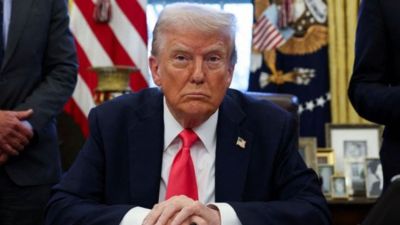At Americas expense
India,China and the rest.
Styling himself Americas first Pacific president,Barack Obama in Tokyo last year promised to strengthen and sustain our leadership in this vitally important part of the world. On November 5 he was due to begin a visit to India,Indonesia and South Korea,and to return to Tokyo to attend the summit of the Asia-Pacific Economic Co-operation forum. President Obama still has to counter a common perception in Asia that America has lost strategic ground to a rising China partly through its own focus elsewhere after the September
11 attacks,and partly because of the impact of the global financial crisis.
In Asia Alone,Simon Tay,chairman of the Singapore Institute of International Affairs,a non-government think-tank,frets that this rift might turn into a permanent divide. Americas political will to engage with Asia and its influence,he writes,seem to be waning. Meanwhile Asia is rising and developing a stronger sense of regionalism. His timely and readable book makes the case for continued American engagement.
Perhaps because of his Singaporean perspective,Mr Tay may overstate the dangers. South-East Asia in general,and Singapore in particular,have been very successful in placing themselves at the centre of regional diplomacy. An unspoken fear behind his argument is that South-East Asia itself risks losing influence. After all,as Mr Tay notes,the previous administration,of George Bush,was very active in managing its relations with China and India. Yet he accuses it of overlooking the wider picture of Asia. An Asia minus India and China is perhaps only wider if you live in the bits in between.
Also,as Mr Tay concedes,Asian regionalism is a mess,a bewildering plethora of ineffectual talking-shops that only keep going by refusing to tackle head-on any of the potential conflicts they are designed to defuse. And since the region is riven by any number of intractable disputes the Koreas,Taiwan,Kashmir and the South China Sea are just a few meaningful integration seems a very long way off. He is right,however,that Asias rise is bringing a greater interest in the topic,and that the Wests neglect could lead to its exclusion from the debate about the future.
Another historic burden Mr Obama carries in Asia is the arrogance of American officials during the Asian financial crisis of 1997-98. That caused resentment,helped burnish Chinas image and inspired some scarcely concealed glee at Americas comeuppance a decade later. But Chinas rise provokes fear as much as admiration in the region. Its recent assertiveness over territorial claims in its near-abroad has seen the regions smaller countries scurry for American reassurance of support. The difficulty they face is in reconciling China to their need for an American comfort blanket.
This is a symptom of a broader problem: the belief,common on both sides,that China can rise only at Americas expense. Rather,Mr Tay argues,it is possible and indeed desirable for China to rise and the United States to remain powerful and influential in Asia. The hope must be that he is right. But mutual suspicions of each others intentions have become deep-rooted. America and China still often play Asia as a zero-sum game.
© The Economist Newspaper Limited 2010
Photos



- 01
- 02
- 03
- 04
- 05




























